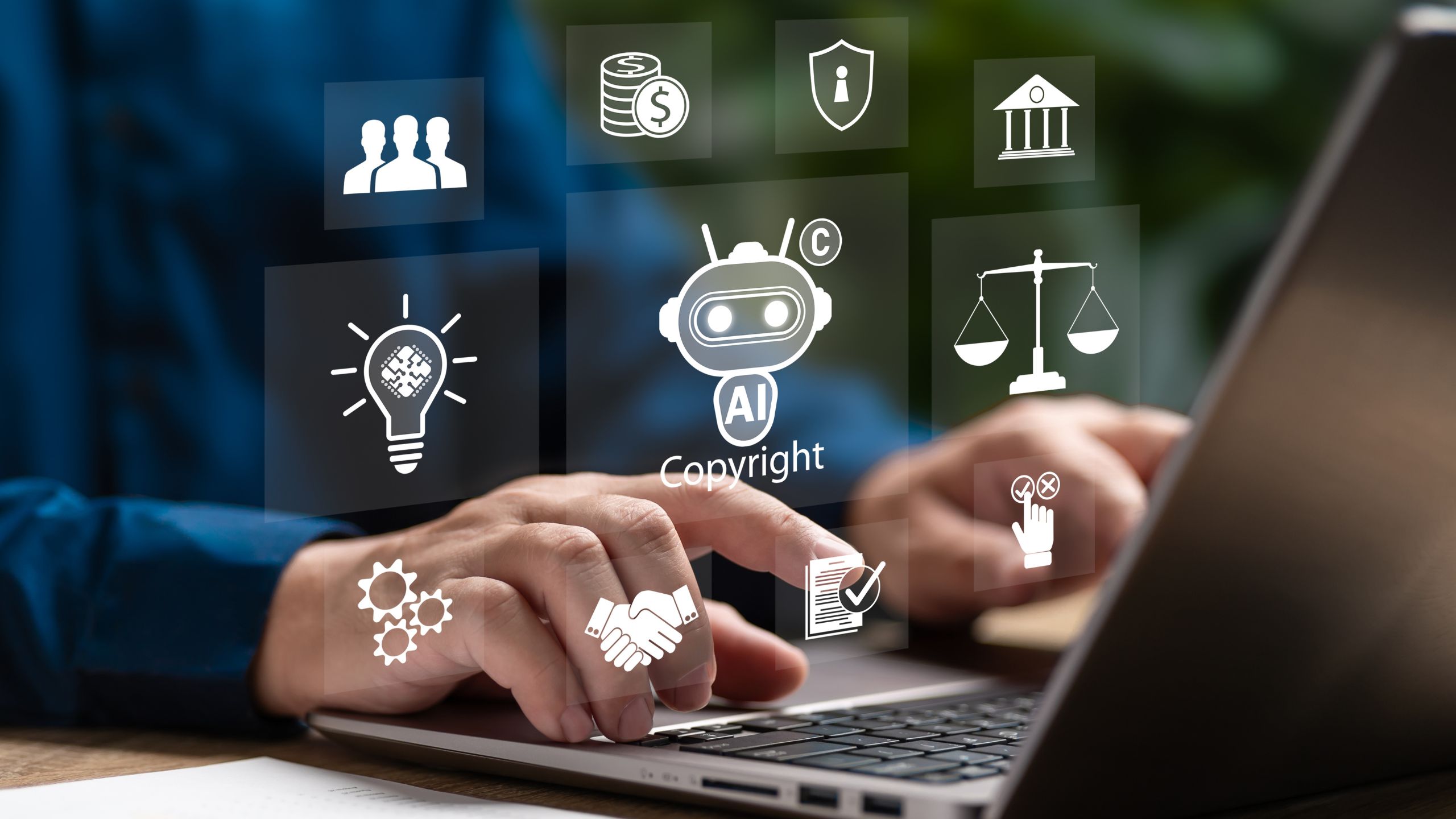As artificial intelligence (AI) continues to transform how businesses operate, business owners are increasingly using AI tools to generate marketing content, images, product descriptions, and even legal documents. While these innovations boost productivity and reduce costs, they also introduce new legal risks, particularly around copyright infringement. At McCune Law Group (MLG), our commercial litigation attorneys are closely monitoring this evolving issue to help business owners stay compliant and protect their brands from costly legal disputes.
Understanding Copyright Law in the Age of AI
Copyright law protects original works of authorship, like writing, music, software, and art, automatically upon creation. However, AI-generated content presents a unique legal gray area. Current U.S. copyright law generally requires a human author for copyright protection, meaning content created entirely by AI may not qualify for protection. This leaves business owners vulnerable in two critical ways:
- Using AI Content That Infringes Existing Copyrights: Many generative AI tools are trained on vast datasets, including copyrighted material scraped from the internet. If the AI outputs text or images that closely resemble or replicate copyrighted works, businesses using that content could unknowingly become liable for infringement.
- Lack of Copyright Protection for AI-Generated Work: If you rely on AI to create original branding or promotional material, you may have limited or no legal protection if a competitor copies your content, since the copyright may not be enforceable.
Legal Risks for Business Owners
Small and mid-sized business owners are especially vulnerable to the legal pitfalls of using AI-generated content because they often lack in-house legal teams or dedicated compliance departments. This can result in unintentional copyright infringement if the AI tool used produces content that closely mimics or directly replicates copyrighted works.
For example, if an AI-generated image or paragraph resembles an existing copyrighted piece, even if generated without human intent to copy, it can still lead to claims of infringement. Copyright holders may issue cease-and-desist letters, takedown notices, or even file lawsuits, creating legal headaches for business owners who were simply trying to streamline their content production process.
Even beyond the threat of legal action, the reputational damage from being associated with copyright infringement can harm long-term relationships and brand trust. With courts still navigating how to treat AI-generated work under existing copyright frameworks, the legal landscape is uncertain—making it all the more important for smaller businesses to tread carefully and seek counsel when necessary.
Ethical Concerns of Using AI-Generated Content
Beyond legal risks, there are growing ethical concerns surrounding the use of AI-generated content, especially for businesses that rely on authenticity to build their brand. One of the key ethical concerns regarding AI-generated content is transparency. When businesses use AI to create materials, marketing content, or artwork without disclosing it, consumers may feel misled. This lack of transparency can undermine the credibility of the business and damage new and long-term customer relationships. Consumers are becoming more aware of, and concerned about, the difference between human and machine-created work, and many value authenticity as a key part of brand identity.
Another ethical concern involves the source material used by AI tools. Many generative AI systems are trained on massive datasets that include copyrighted works, journalistic articles, and creative pieces, often without the consent of the original creators. When businesses use outputs from these systems without providing proper credit, they may inadvertently contribute to the exploitation of human artists, writers, and developers whose work was used without permission or compensation. As the conversation around ethical AI use grows louder, it is crucial for business owners to consider not just what is legal, but what is ethical.
Best Practices for Mitigating Copyright Risk with AI-Generated Content
To minimize liability and avoid costly commercial disputes, business owners should take proactive steps when using AI content:
- Use Reputable Tools with Clear Licensing Terms: Always review the terms of use for any AI platform. Look for tools that offer indemnity or have clear policies around training data and output usage rights.
- Avoid Overreliance on AI for Creative Work: Use AI to assist, but not fully automate, the creation of content. Adding a layer of human authorship helps retain copyright eligibility and reduces the chance of accidental plagiarism.
- Keep Records of Content Generation: Document how, when, and with what tool AI content was created. If challenged, having a detailed paper trail can help defend your use in court.
- Seek Legal Review for High-Stakes Content: For major campaigns or public-facing materials, have a commercial litigation or intellectual property attorney review the content before publication.
When to Call a Commercial Litigation Attorney from McCune Law Group
If your business receives a copyright infringement notice or faces legal action over AI-generated content, it is crucial to act quickly. Commercial litigation involving intellectual property can be complex and may move quite quickly. The attorneys at McCune Law Group have deep experience representing business owners in high-stakes disputes involving content use, branding, licensing, and commercial contracts.
Whether you are a small e-commerce company using AI to write product listings or a marketing firm generating content for clients, we can help ensure your business is protected and compliant.
Contact Our Team Today
AI tools offer unprecedented opportunities for small and mid-sized business owners, but they also come with legal strings attached. By staying informed and working with experienced commercial litigation counsel, you can enjoy the benefits of AI innovation while reducing the risk of copyright disputes that could damage your business.
If your company has encountered a copyright dispute or you are concerned about potential exposure related to AI-generated content, contact MLG today. Our experienced commercial litigation team is ready to help you navigate this evolving legal landscape with confidence.
If you are a business owner and need assistance with navigating this complex and evolving legal landscape, contact our team today to see how we can help.
